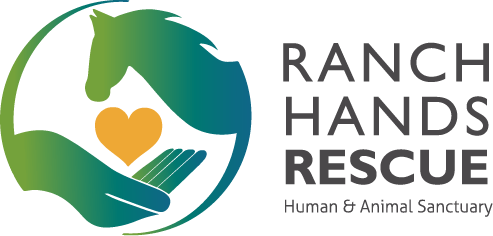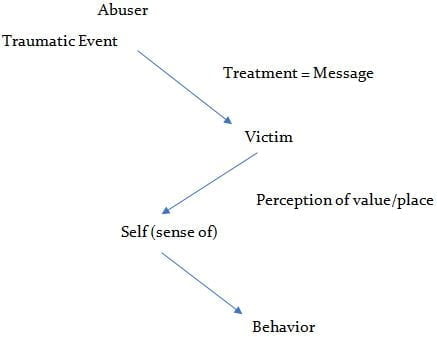Recently, I crafted a metaphor that helped me understand how maltreatment cycles through us as we go about the business of living. It is my hope that this way of looking at the legacy of abuse and trauma is helpful to others as it has been for me.
Why Do We Abuse Ourselves?
When we experience abuse, or trauma of any kind, we begin to process that experience in a way that allows us to make sense of it. We need to find a way for it to fit within our view of how the world works; which, in turn, affects the way we view ourselves. What is the meaning of this? Why me? What is my place in all of this? What does this event and my behavior in it mean about who I am? If for example, a child is abused or neglected by their parent, they may internalize the message that they have little worth or value. Or, perhaps an adult loses their child to a natural disaster, they may internalize the message that they are utterly powerless. These messages are interpretations of the value of self and place in the world, all of which are absolutely reasonable under such circumstances.
As a result, we begin to define our self-image and our value (or lack thereof) through that lens. This is not a conscious effort as we move through the business of surviving, but rather, these definitions become beliefs that drive our behaviors. In essence, we end up treating ourselves the way we were treated by our abuser, or by how the experience made us feel, regarding our place in the world. The abused/neglected child moves through adulthood with little regard for their own well-being, or with active efforts to harm the self (non-suicidal self-injurious behavior, suicide attempts, substance abuse, etc.). If they are without value or their autonomy has no place in the world, why bother to care for the self? The parent who lost a child loses all interest in engaging with life, effectively reinforcing this message that they are powerless; or, they begin to blame themselves, reinforcing the message that they were inadequate or a bad parent. As a result, in both cases, caring for and about self goes out the window.
The Cycle of Abuse

Personal note: Even as I write this, my mind wanders through questions and counter-points. I wrestle over each point as if satisfaction must be attained from every angle. I try to convince myself that this is not worth writing because it is unoriginal, or not true in every case, or too reductionist, or whatever. What I have to remind myself is that, even if it is all those things, it helped me gain some clarity into patterns in my own life and it is therefore likely to be a perspective that illuminates patterns for someone else. And that makes it worth writing, that makes it worth sharing.
By: Landon C. Dickeson, MS, LPC-Intern, NCC
Landon graduated from the University of North Texas with a Masters of Science in Clinical Mental Health Counseling and a focus on trauma and crisis intervention. Landon has been working and volunteering in the mental health field for 8 years and is licensed as an LPC-Intern in the state of Texas under the supervision of Steve Tryling, MS, CSAT, LCDC, LPC-S. Landon is excited to be a part of the clinical team at Ranch Hands Rescue!


